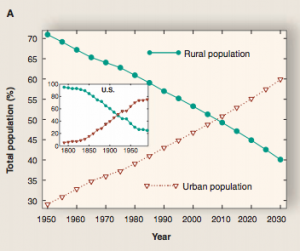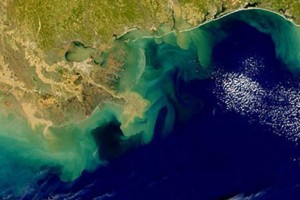Related Topics
The Global Impact of Cities
An important result of the research that Dr. Barnes conducts is its contributions to our understanding of how disruptive cities are to global processes. The review article, “Global Change and the Ecology of Cities” provides a great review of urban areas impact on the environment. The article explains that the major land use changes associated with the dramatic increase in global urbanization have resulted in losses of biodiversity and ecosystem functions and have created massive nutrient sources. Figure 1, demonstrates the dramatic urbanization that has occurred in the last sixty years and future urbanization.
(Grimm et al. 2008)
Please read the article and learn more about cities impact on our world.
Grimm et al. “Global Change and the Ecology of Cities”, Science. 319, 756 (2008).
<http://moodle.lafayette.edu/mod/resource/view.php?id=146333>
Nitrogen Removal Techniques
Dr. Barnes is concerned with the biogeochemical cycling of nitrogen within watersheds, because of the many consequences, such as eutrophication, disease and disruption of environmental processes that can result from excesses of nitrogen. Techniques have been developed to treat the nitrogen in wastewater and agricultural run off so that it does not pollute watersheds. The article “Bio-removal of nitrogen from wastewaters – A review” does an excellent job of explaining the problem of excess nitrogen and some of the techniques used to remove it from agricultural, industrial and domestic wastewater.
Breisha, Gaber & Winter, Josef. “Bio-removal of nitrogen from wastewaters – A review”, American Science. 6 p. 508-528 (2010).


Leave a Reply